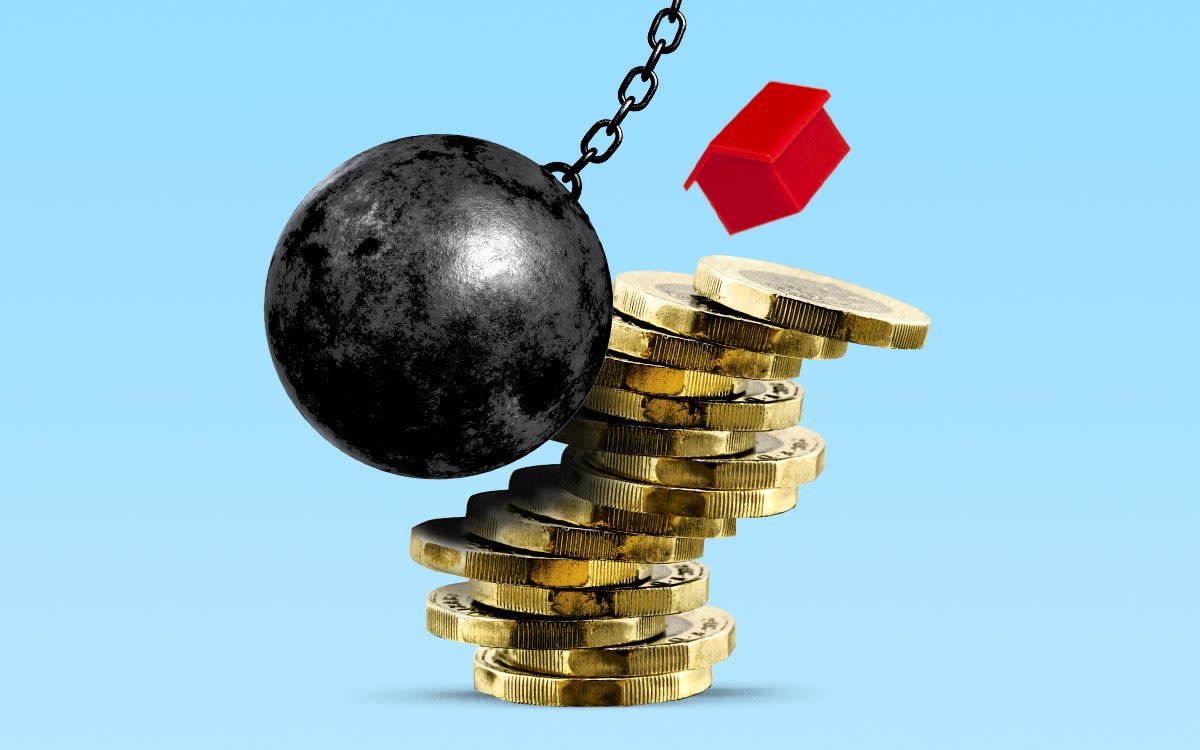House price growth nearly at zero as property boom ends

House price growth has slowed to almost zero, marking an end to Britain’s latest property boom.
The rate of monthly price growth was 0.1pc in May, the lowest rate recorded since December 2019, according to property website Zoopla. The firm warned of “emerging signs” of a market slowdown as agreed sales fell by 13pc year-on-year.
The quarterly growth rate of 1.4pc over the last three months was the slowest pace recorded in 15 months. Average prices climbed by 8.4pc in the year to May, down from the 9.2pc rate recorded in April. The average home now costs £251,550.
Buyer demand, which Zoopla measures as a combination of searches and enquiries, is rapidly cooling. Back in January, it peaked at 86pc above the five-year average. By the end of June, this gain had fallen to 37pc above the historic benchmark.
The South West, which recorded one of the fastest rates of house price growth in the country, also saw the steepest monthly drop in buyer demand of any region in the UK, with a fall of 14pc. This suggests the affordability squeeze is hitting the market fast.
The Bank of England’s five consecutive decisions to raise interest rates since December have pushed up the average rate on a five-year fixed mortgage from 2.64pc to 3.37pc, according to Moneyfacts, a data company.
As buyer demand has cooled, the average time taken to sell a property climbed from 20 days in March to 22 days in May.
The rate of house price growth is expected to slow throughout the rest of the year, though Zoopla does not expect values to fall. By the end of 2022, house price growth will be 3pc, down from 7.8pc in January.
Gráinne Gilmore, of Zoopla, said: “The increasing cost of living, increasing mortgage rates for buyers and cloudier economic outlook will act as a brake on house price growth through the rest of the year.”
Nick Leeming, of Jackson-Stops estate agents, said: “I think we’ll look back and note the first quarter of 2022 as the absolute pinnacle of post-pandemic related property enthusiasm.”
The spring, however, was the turning point. He said: “It’s now apparent that April will be looked back on as an inflection point of the market. We are already seeing many over-ambitious sellers coming back down to the realms of reality.”
Wales recorded the strongest yearly price growth at 11.4pc, while London lagged at 3.9pc.
Nottingham recorded the highest house price growth of any of the UK’s largest cities at 10.4pc. This took average house prices to £190,300. Aberdeen, where property prices are closely tied to the North Sea energy industry, recorded a 2pc fall.

 Yahoo Movies
Yahoo Movies 
